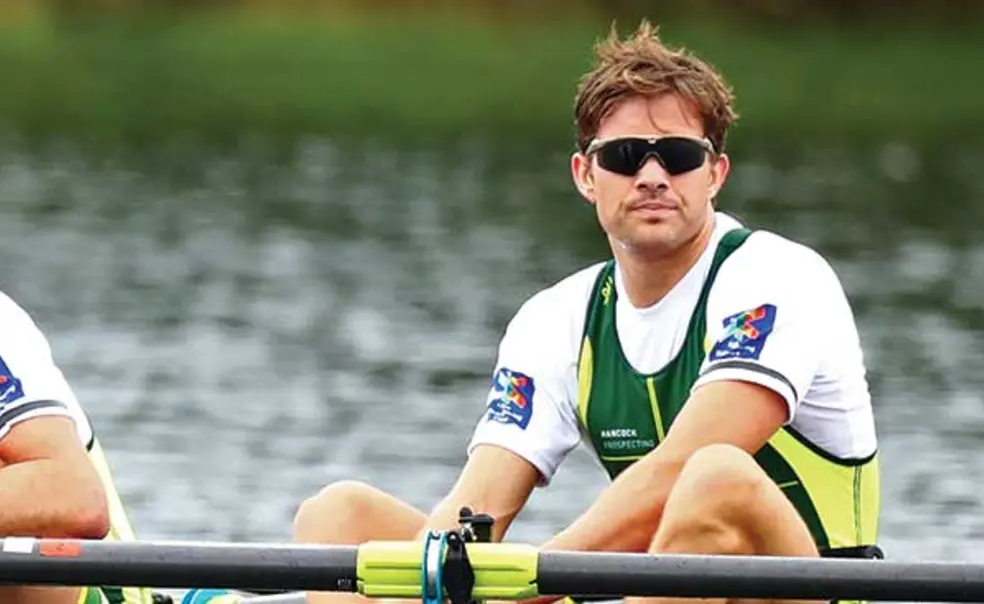Training for Tokyo: Try, Try Again
After a near miss in 2016, Masters ’15 vies for a seat in Australia’s men’s eight
As Tim Masters ’15 considered the lessons that have stayed with him from his Princeton rowing career, he paused and then said slowly, “some synonym of perseverance.” Rolling the idea over in his mind, he came up with “persist through adversity,” before adding “that, and the big training loads” on the ergometer, the rowing machine used for off-water workouts.
Since returning to his native Australia after graduation, Masters has been putting both lessons to good use as he trains to row in the Olympics. This year, he competed on the Australian men’s eight that, after four long years, secured a spot at the 2020 Olympics in Tokyo. His next goal is earn a place on the Olympic crew, which will be selected at national-team trials next year.
In 2016, Masters was part of the Australian crew that competed at the so-called “regatta of death,” the last chance to earn a bid to the 2016 Olympics in Rio de Janeiro, and missed qualifying by one place.
At the 2019 World Championships, Australia needed to finish in fifth place or better and ended up in fourth, one second ahead of the United States. “It was hot racing,” Masters said. “Just two seconds was between the third-place and the fifth-place boats. It was really hard-fought racing. … It’s good to qualify.”
As an undergraduate, Masters was the stroke of the varsity boat that took Princeton back to the medal stand at the IRA nationals, winning bronze in 2015, and reclaimed the Rowe Cup (team points at Eastern Sprints), the Compton Cup (Princeton vs. Harvard), and the Princeton-Navy Cup. “A lot of my rowing — both physically and mentally — developed at the Princeton boathouse. The big training loads on the erg, the months of winter training, the team,” he said.
“Australian rowing is highly technical,” Masters continued with a chuckle, “or at least we try to be.” His accent leaves that soft twang in the air as he speaks. “I take a long-term view of training now.”
After he graduated from Princeton, he trained to make the Australian national team while also working as a consultant for Ernst and Young in Canberra. “Eventually, I realized I was better off doing one thing well than trying to do two,” he said. “The amount of training we’re doing made it hard to manage day-to-day client interactions.”
Masters has been training full time since 2017, and his path toward securing an Olympic seat is now in full swing. “It’s pretty unrelenting until [national-team] trials, then full-on training leading up to Tokyo. My next 10 months are pretty planned out,” he said. “It’s what I’d hoped for in 2016. It’s just taken me four years.”
This is an expanded version of a story from the Oct. 23, 2019, issue.












No responses yet